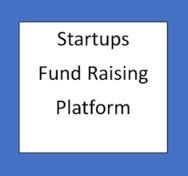Introduction
One company has repeatedly distinguished out in the fast-paced world of venture capitalism for its forward-thinking investments and uncanny ability to predict the next big thing in technology. Fortunes are won and lost with the turn of a startup’s fate. Arthur Patterson and Jim Swartz started Accel in 1983, and the name has since come to represent creativity and achievement in the world of technology investment. With more than three decades of experience, Accel has shaped the course of several tech titans, making it a force to be reckoned with in the world of venture capital. The history, business practises, and important investments of Accel will be examined in-depth in this article, giving light on how this company rose to the top of the venture capital industry.
the start and early years
Patterson and Swartz, both previous executives at the venture capital company Arthur Rock & Co., made the decision to carve their own route, and this is where Accel’s journey began in the heart of Silicon Valley. They were motivated by a same goal of assisting new firms in their early stages that had the ability to completely change industries. Accel Capital Partners was established in 1983 with a modest initial investment of $10 million.
The early years of the company were characterised by an unwavering concentration on discovering and fostering ground-breaking inventions. Accel strategically invested in businesses like Macromedia and UUNet in the 1980s; these businesses ultimately emerged as key figures in the IT industry. These early victories served as the cornerstone for Accel’s renown as an innovative venture capital firm.
Internet-based revolution
The timing of Accel was impeccable. Accel was at the vanguard of investments that would define the digital age as the internet became more and more popular in the 1990s. During this time, one of its most famous investments was made in a little-known fledgling company called Netscape Communications. The company invested $12.2 million in Netscape in 1995, barely one year after it was established. This wager was amply rewarded when the IPO of Netscape became one of the most famous events in technological history, thus ushering in the dot-com era.
Accel’s participation in the internet boom extended beyond Netscape. The business has made early investments in businesses like RealNetworks, a pioneer in streaming media, and Walmart.com, the retail behemoth’s online division. Through these calculated bets, Accel gained a reputation as a forward-thinking company that can predict technological trends before they spread.
Global Growth
Accel focused on international expansion after seeing success with its initial investments. With the opening of its London office in 2000, the company officially entered the European market. This action helped Accel become a true global venture capital player with the ability to recognise promising firms on a global scale.
The growth of the European tech scene and Accel’s entry into that continent occurred at the same time. It was clear from the firm’s investments in Supercell, Spotify, and Slack that it was committed to assisting creative firms outside of Silicon Valley. The fact that Accel was able to recognise the potential of these European unicorns enhanced its standing as a major digital investor.
The Age of Social Media
Accelerator continues to change with the evolving tech landscapes as the twenty-first century went on. Accel was quick to seize the potential that the development of social media brought. The company’s 2005 investment in Facebook has now become infamous. As a college project, Accel spent $12.7 million in the social networking site. Accel’s early bet was crucial to the success of Facebook’s subsequent meteoric expansion, which made it one of the most valuable tech businesses in the world.
The addition of Dropbox, Etsy, and Slack to Accel’s portfolio demonstrated the company’s continued success in identifying and developing the next generation of tech leaders. The company continued to look for interesting businesses all over the world and made investments outside of the US.
Evolution and Diversification
Accel broadened its portfolio to encompass a variety of industries as the IT landscape changed. The company made investments in pioneers like Atlassian and Qualtrics after realising the potential of software-as-a-service (SaaS) businesses. With investments in CrowdStrike and Tenable, Accel joined the cybersecurity industry as well.
Furthermore, Accel supported businesses like Adyen, WorldRemit, and Robinhood as the finance industry grew. With this diversification strategy, the company was able to lower risk and capitalise on rapidly developing IT markets, assuring its ongoing relevance in a sector that is always evolving.
Accel Now
Accel currently oversees a number of funds with a combined $12 billion in assets under management (AUM). The company is present in Silicon Valley, Bangalore, and other important global IT hubs. The founding principles of Accel still guide its investment strategy: to find, back, and promote entrepreneurs with a big vision who are creating businesses that have the potential to transform the world.
Several fundamental ideas form the foundation of Accel’s investment thesis:
Founder-Centric Approach: Accel is of the opinion that great founders are what make successful firms go. The company looks for founders that have an inspiring vision, excellent leadership abilities, and a relentless determination to see their ideas through to completion.
Long-Term Partnership: Accel invests with patience and a long time horizon in mind. In addition to providing financing, the company is committed to its portfolio firms by giving strategic advice and assistance to help them overcome the difficulties of growing their operations.
Sector Knowledge: Accel’s team of seasoned partners and associates has extensive industry knowledge in a variety of tech areas. They can make wise investment choices and offer insightful advice to their portfolio firms thanks to this expertise.
Global Perspective: Accel’s presence across the world enables it to spot interesting startups in many regions. The company makes use of its vast network to connect founders with opportunities and resources on a worldwide scale.
Significant Investments
The track record of profitable investments made by Accel demonstrates its capacity to find entrepreneurs that will change the game. The following are some of its most notable investments:
Facebook: Accel’s early investment in the social media giant was crucial to its development into a worldwide sensation.
Slack: When Slack was still a largely unheard-of chat service, Accel provided funding. Slack is a popular collaboration and communication application utilised by companies all over the world today.
Dropbox: With Accel’s help, Dropbox was able to establish itself as a leading cloud storage and file-sharing service.
Spotify: The company’s investment in the music streaming service helped it become the leader in the music business.
Atlassian: Accel understood the potential of Atlassian’s software products for IT teams and software professionals, which resulted in a prosperous initial public offering (IPO).
CrowdStrike: Accel’s early investment established cybersecurity company CrowdStrike as a market leader.
Qualtrics: Accel’s support of this pioneer in experience management software led to a prosperous initial public offering (IPO).
Criticisms and Obstacles
Although Accel’s success cannot be disputed, no venture capital firm is exempt from difficulties and setbacks. The following are some frequent criticisms of Accel and the venture capital sector as a whole:
Lack of Diversity: The tech sector and venture capital firms, including Accel, have come under fire for their underrepresentation of women and people of colour. Although efforts are being made to solve this problem, little has been accomplished.
Market bubble risk: The venture capital sector is susceptible to them,
when startup valuations rise unjustifiably. To make wise investment choices, Accel, like other businesses, must understand these market dynamics.
Potential for Excessive Influence: According to some detractors, venture investors have too much power to sway the course of startups, which could compromise the founders’ original intentions.
Focus on Short-Term Returns: The need to satisfy investors’ demands for quick returns can occasionally force entrepreneurs to make choices that put their own financial interests ahead of the long-term viability of their businesses.
Conclusion
The growth of Accel from a small startup to a major player in the world of venture capital is a credit to the foresight, adaptability, and discernment of its founders. Accel has contributed significantly to the development of the tech sector over the past four decades by supporting some of the most recognisable businesses of the modern era.
Accel is dedicated to its basic values of founder-centric investing, long-term partnerships, industry expertise, and a global perspective even as the tech landscape continues to change. Accel’s influence on the technology and innovation world is indisputable, and its history as a trailblazing venture capital firm is certain to survive for generations to come, despite ongoing difficulties and critiques.
NOTE: Obtain further insights by visiting the company’s official website, where you can access the latest and most up-to-date information: Website:https://www.accel.com/

